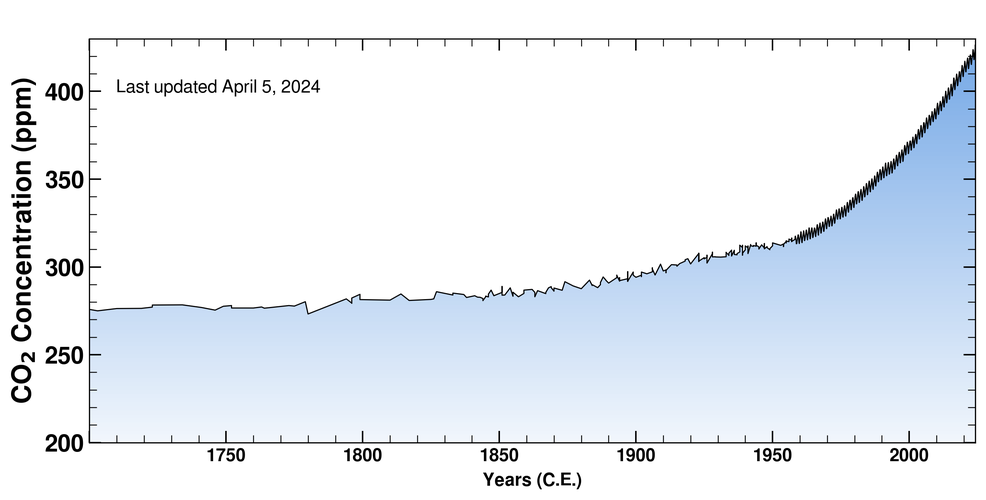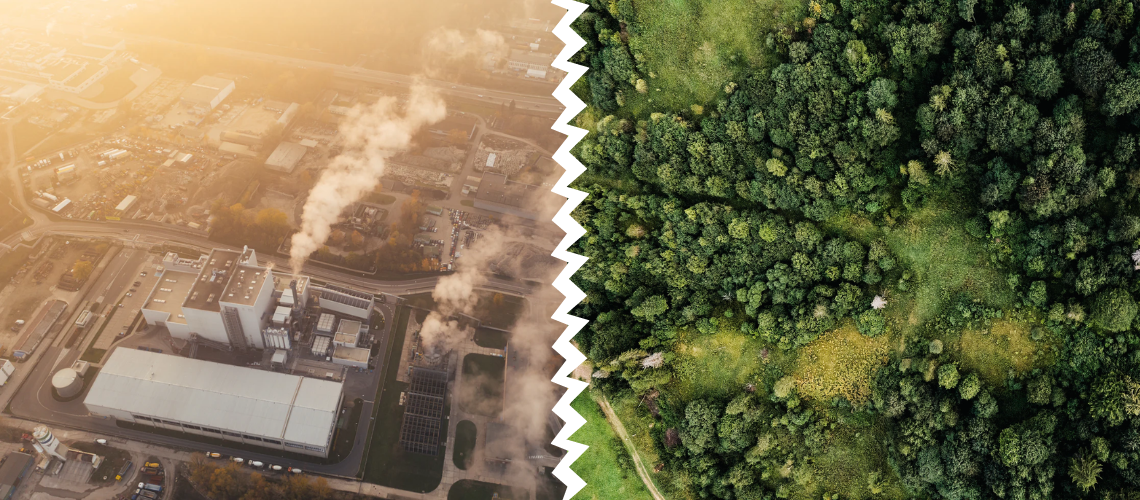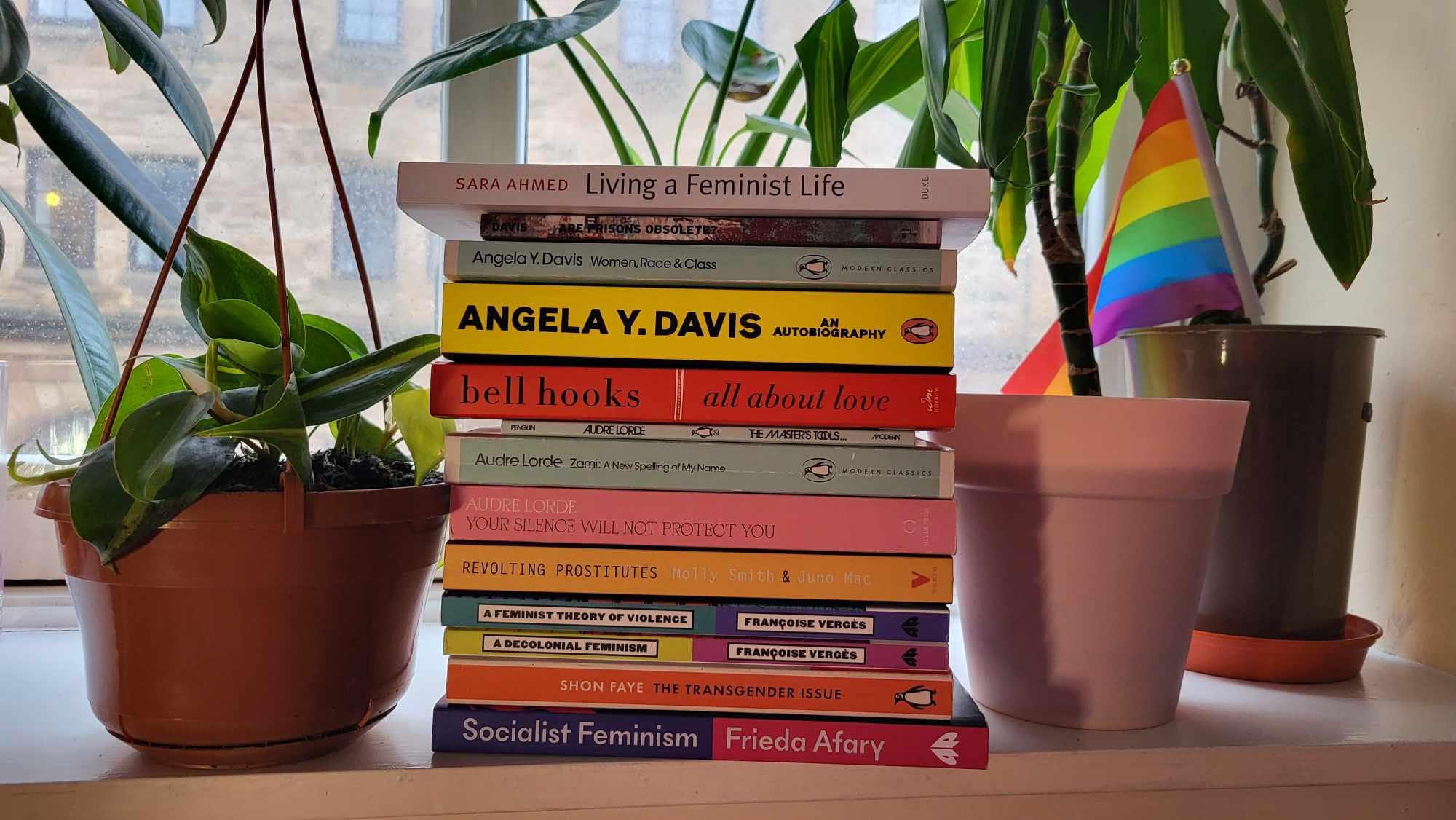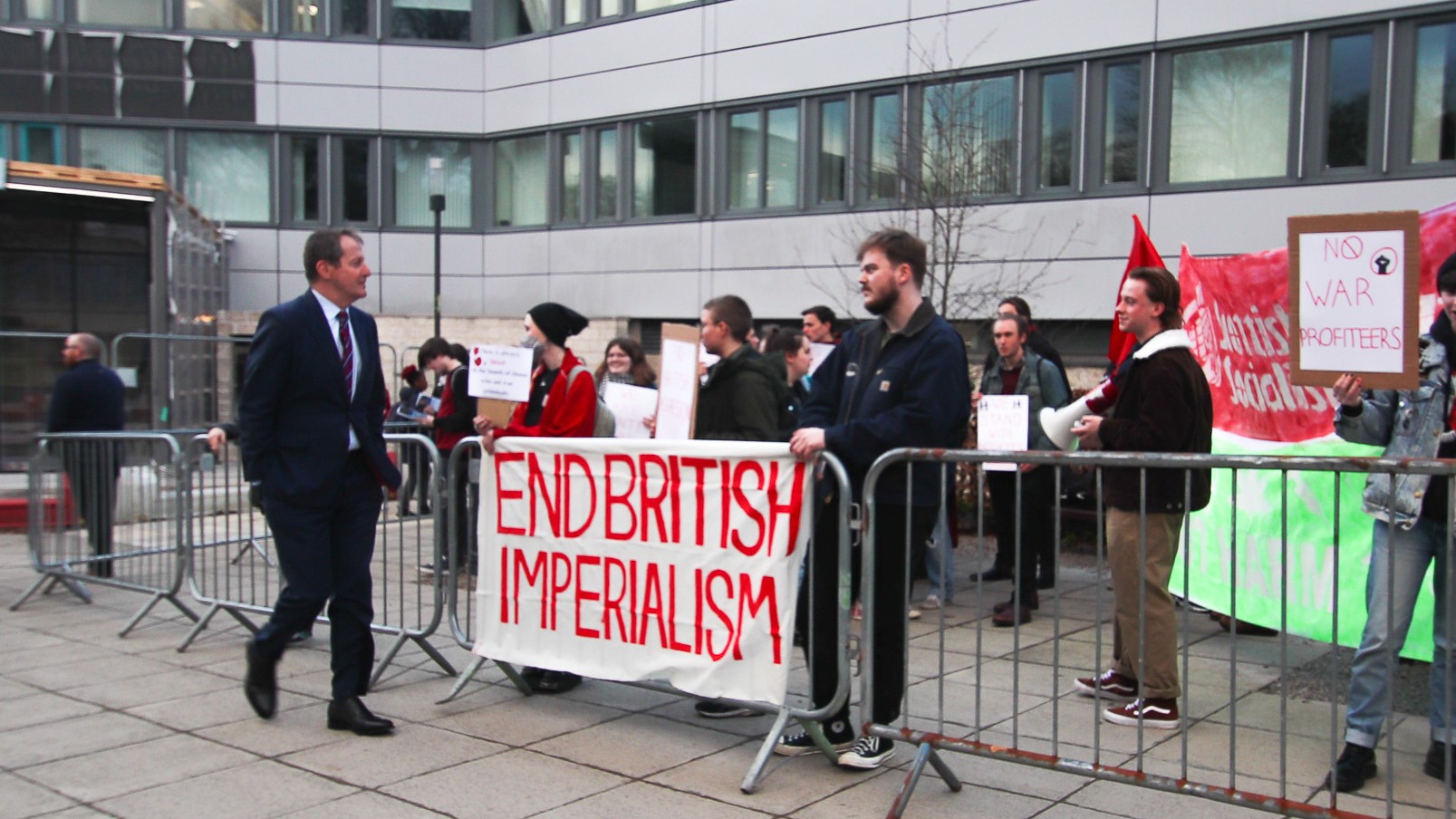I’m sure you will not find it controversial for me to say that we are in the middle of an ecological crisis driven by human economic activity. As of 2024, the average atmospheric carbon dioxide concentration is around 420 parts per million, a 50% increase since the start of the industrial revolution. The average global surface temperature has surpassed 1℃ above pre-industrial levels and is close to reaching 1.5℃. Already we are seeing increasingly regular extreme weather events alongside 150 billion tonnes of Antarctic ice being lost each year.

While climate change is perhaps the greatest single threat to life on earth, overexploitation of land, air and water pollution, and the growing threat of microplastics are all putting peoples health at risk and destroying habitats. The biological diversity upon which the complex ecosystems of our world depend is disappearing at a terrifying rate.
Factory farms, alongside being a monstrous system in regards to its treatment of sentient animals, provides excellent conditions for the spread and development of diseases. The next pandemic is unlikely to be far off and will be far more deadly than Covid-19. In the meantime, nutrient cycles in the fields are being pushed to their limits by overuse of fertilisers, throwing ecosystems off balance (see: eutrophication).
The specific, individual causes and solutions to these problems are varied and numerous, however, they all tie in to a common theme: overconsumption and overexploitation of resources. Both are the result of competition to accumulate capital, a process which is not innate to humanity as some might insist, and can be ended and replaced with a more just system.
Socialist Degrowth
As socialists, we naturally advocate for the end of capitalist dominion and the establishment of a socialist economic system. However, is this enough to stem the tide of ecological catastrophe? Can we simply continue to expand industrial production and consumption under a red banner? If we are to preserve our planet’s ecosystems and ensure its habitability for future generations, degrowth must become a key component of our economic planning.
Degrowth proposes that economic growth shouldn’t be the standard by which we judge a society’s success. Instead, certain sections of the economy should actively be shrunk, allowing for resources to be used for development in more essential areas without increasing our harm to the environment.
In practice, sections of the economy which exist purely for profit and/or the enjoyment of extreme wealth would be dramatically scaled back. This could include advertising, private transport, armaments, and all varieties of cheap consumer products designed for obsolescence. The resources, energy, land, and labour tied up in these parts of the economy could then be focused towards socially important areas such as health, education, quality housing, etc. Alternatively, part of the spared materials and energy could simply be removed from societal demands, reducing the scale of production and extraction required. Land could instead be rewilded, allowing Scotland’s long suffering habitats a place to recover free from human overdevelopment.
As a specific example, agriculture, given its extensive land use and high contribution to climate change, would have to be fundamentally restructured. This could involve better integration of fields into ecosystems or encouraging urban agriculture to make up part of local demand, but most importantly, the dramatic scaling down, if not total abolition of animal husbandry. Including both land used for grazing and that used for growing animal feed, livestock take up 77% of the 50% of the world used for agriculture, while only providing 18% of calories and 37% of the protein consumed. Ethical concerns around livestock aside, this is grossly inefficient. Mass consumption of animals at the current level is simply not compatible with preserving ecosystems. As reducing land use by high density industrial farming is not an acceptable goal for reasons past mentioned, the only viable solution is a significant reduction in meat consumption. Of course, this would require the adoption of largely plant/fungus based diets over time for the majority of the population, with cultural and dietary exceptions where appropriate.
Socialist Productivists
As awareness of degrowth has grown on the left, so too has the cry of its opponents. Believers in productivism, the belief that the goal of society should be to produce and consume more, have been ardent in their opposition to degrowth arguments.
Some appear to have embraced environmentalist stereotypes pushed by reactionary media while hardly pretending to consider the arguments for degrowth. In “Less Sucks: Overpopulation, Eugenics, and Degrowth” (a fundamentally unserious book) Peter Coffin writes:
“It’s not austerity and it’s not population control either! It’s just reducing energy consumption! After all, energy production is evil, right? Something that greedy capitalists do to… make smoke. And money too. Profit, ew, yuck!”
This specific attitude, however, is most prevalent in sections of the left which portray themselves as “anti-woke”, a fringe which isn’t even progressive, let alone socialist. Though among the more mainstream left, there is still misrepresentation and, at best, misunderstanding of degrowth. The American magazine “Jacobin” regularly publishes articles criticising degrowth. In the most recent instance of this “Kohei Saito’s ‘Start From Scratch’ Degrowth Communism”, Matt Huber and Leigh Phillips write:
“Across the advanced capitalist world for more than four decades, working people have suffered from slashed public services, deindustrialization, ever-more precarious jobs, and, in many sectors, stagnating or declining wages.
“And yet, there is a growing number of environmentalists who say that as a result of the ecological crisis — from climate change to biodiversity loss — even these workers consume too much. They need to tighten their belt for the economy of the Global North to ‘degrow’”
The fear that degrowth will worsen the conditions of the working class is a common accusation not limited to the Jacobin, but despite its prominence it has little basis in reality. Living conditions are not directly determined by the ability of individuals to consume. Sure, access to animal products, private transport, etc. would be limited, but this would be alongside expanded public transport, high quality social housing, and a livable world. In addition, degrowth socialism would result in the decommodification of, for example, food, removing the limitation of price which can prevent people from feeding themselves and others.
Why consumption must fall
So called “green growth” has been embraced by many who recognise the existential threat posed by climate change but, for one reason or another, haven’t rejected the status quo of productivism and embraced degrowth. Unsurprisingly, it has not only been promoted by reform minded politicians, but also corporate interests looking to maintain profits in a changing world.
Of course, those who advocate for transitioning to more sustainable methods of production, as green growth advocates do, are correct. However, this overlooks the fundamental fact that production must also be scaled back, and that further growth is incompatible with a sustainable future.
Energy is a key demonstrator of this. A 100% sustainable (ideally renewable) energy system is an almost universal demand of those who campaign on fighting climate change and rightly so. Even sustainable methods of energy production have a harmful effect on the environment. Nuclear, which has an important role to play in energy decarbonisation, has an average estimated carbon footprint of 66gCO₂/kWh. Compared to 49.9gCO₂/kWh for solar and 34.1gCO₂/kWh for wind, that is still much higher than is ideal, especially since it is expected to rise as easily accessible uranium supplies decline. As important as the energy transition is, it is equally important to reduce average energy consumption in “developed” countries. This is even more urgent of a priority, as energy use continues to increase while the Global South further develops its economies.
Energy use, again, comes up as we consider rewilding. To protect species and allow for the natural recovery of ecosystems, huge swaths of land would have to be protected from human settlement and development. Though the ideal percentage will differ from person to person, let’s assume 50% as advocated for by the book Half-Earth Socialism by Drew Pendergrass and Troy Vettese. Their suggestion would dramatically decrease the land available for energy production and agriculture. This is especially relevant for a renewable energy system which has a lower output per area than other systems. Nuclear, however, has one of the lowest land use rates per unit of energy and so again establishes itself as having a key role to play in a future eco-socialist society.
There are many other examples, but essentially, increasing production will require increased resources, further stressing the limits of our planet. Though technological developments could mitigate this relationship, currently the means to achieve this aren’t available to us.
A Just Transition
The legacy of Western colonialism and imperialism is easy to see across countries outside of the imperial core. In the process of correcting the immense inequality of development seen between the exploiter nations and their victims, the principles of degrowth cannot be equally applied to all parts of the world. While we would expect average household energy consumption in Scotland to decrease, the same expectation cannot be placed upon nations which, primarily due to European colonialism, are relatively underdeveloped (see: Walter Rodney’s How Europe Underdeveloped Africa). Instead, we’d expect to see an average increase in energy consumption in these nations. Ideally this would be from sustainable sources, however, this may not always be the case.
Towards a Red-Green Revolution
The phrase “capitalism isn’t working” is thrown about often on the left. It’s important to remember that this refers to capitalism not working in the interests of most of the world population i.e. those who are not substantial capital holders. It is not a malfunctioning system that can be fixed. While the most vulnerable, especially in the Global South, are increasingly threatened by climate collapse, the wealthy continue to plunder our planet to make a line on a graph go up at the risk of humanity’s very existence. The habitability of our planet for ourselves and other species may well be dependent on the end of this system of exploitation and the establishment of socialism.
We mustn’t, however, simply raise a red flag and otherwise continue as normal. “The People’s Mass Extinction” would be little better than what we have today. We must strive to totally reinvent society, leaving behind the reactionary ideals that have doomed billions to poverty, death, and destruction. A lack of imagination or conservative instincts to preserve the status quo cannot, must not hold us back from creating a truly just and sustainable society. The future of life, possibly the only life that exists, depends on it.







